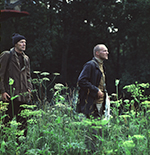Retrospective Andrei Tarkovsky
Opening– 29 May (with Tarkovsky’s student films in the Main Programme) and 10-20 June in во Cinematheque of Macedonia (Skopje) and ISU Derzhavin (Sveti Nikole). All the projection in the Cinematheque of Macedonia are free.
.
STUDENT FILMS (Main Programme)
Projections:
29 May (Saturday) – 21.00, Summer Cinema “A Quiet Summer” (Cinematheque of Macedonia)
31 May (Monday) – 18.00, Cinematheque of Macedonia
11 June (Friday) – 16.30, „Kinoverzum“, ISU Derzavin / Sveti Nikole
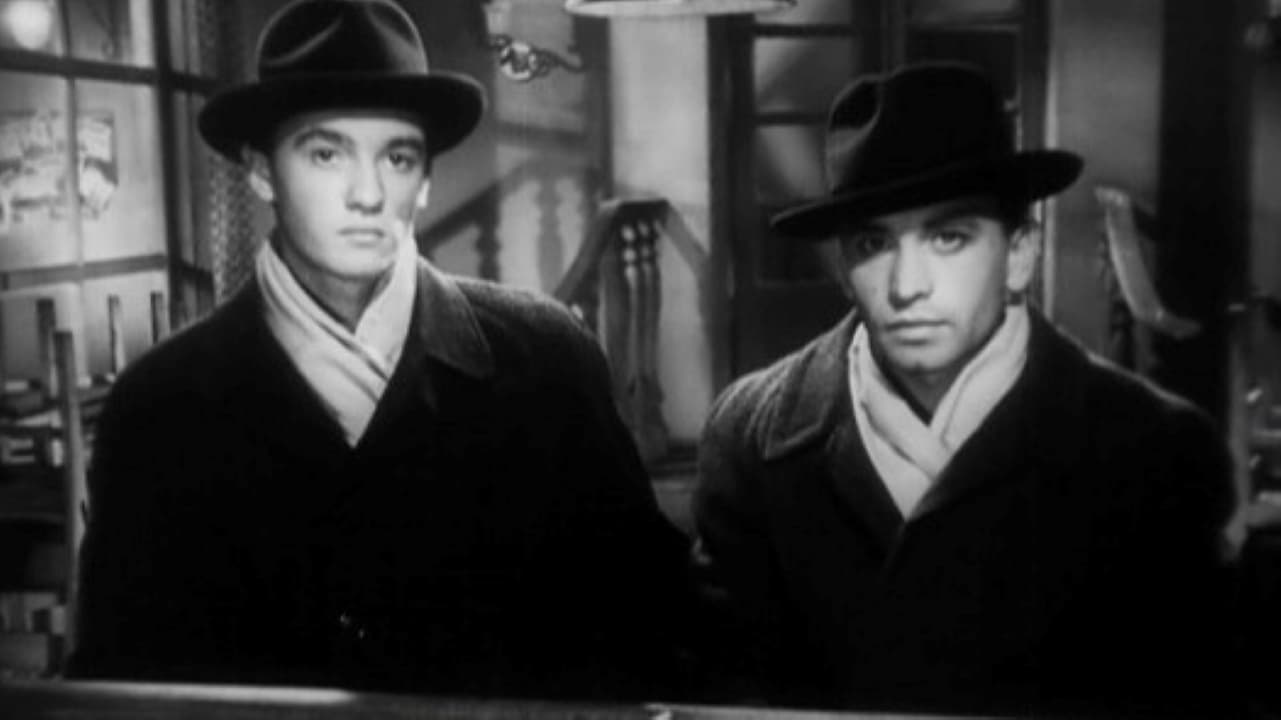
THE KILLERS (УБИЙЦЫ, 1956) RU, 19’
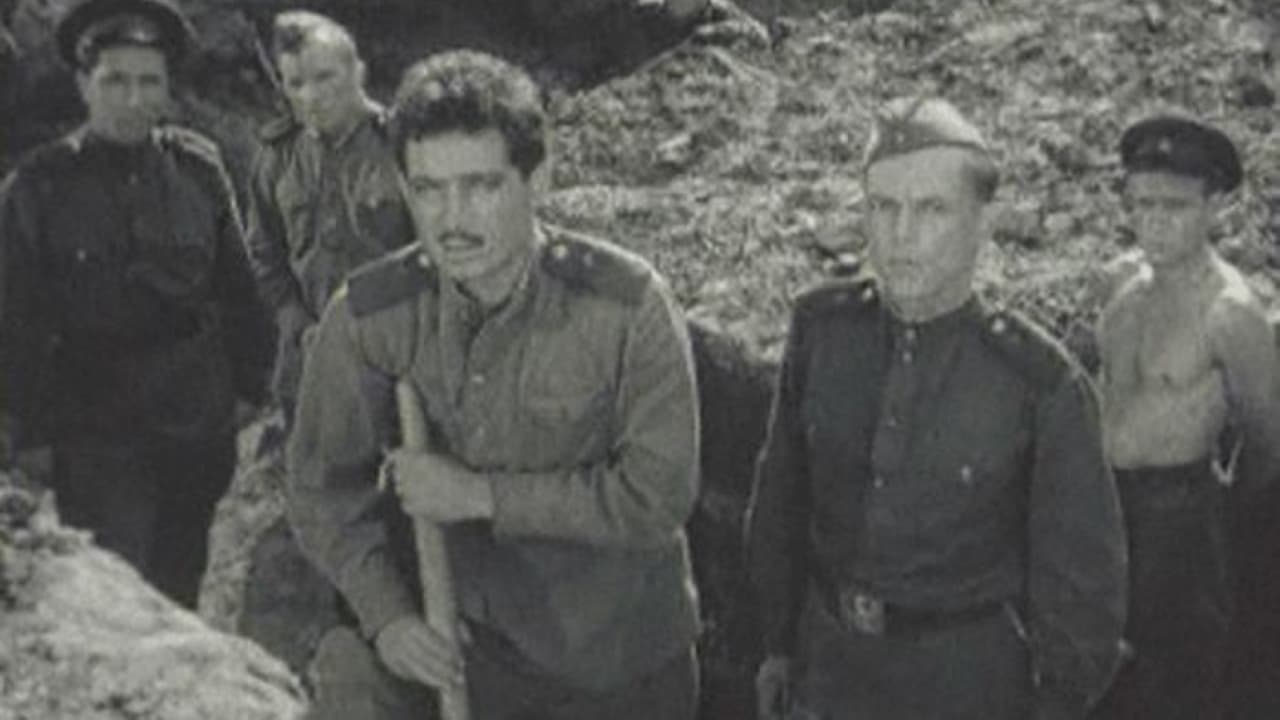
THERE WILL BE NO LEAVE TODAY (СЕГОДНЯ УВОЛЬНЕНИЯ НЕ БУДЕТ, 1959) RU, 47’
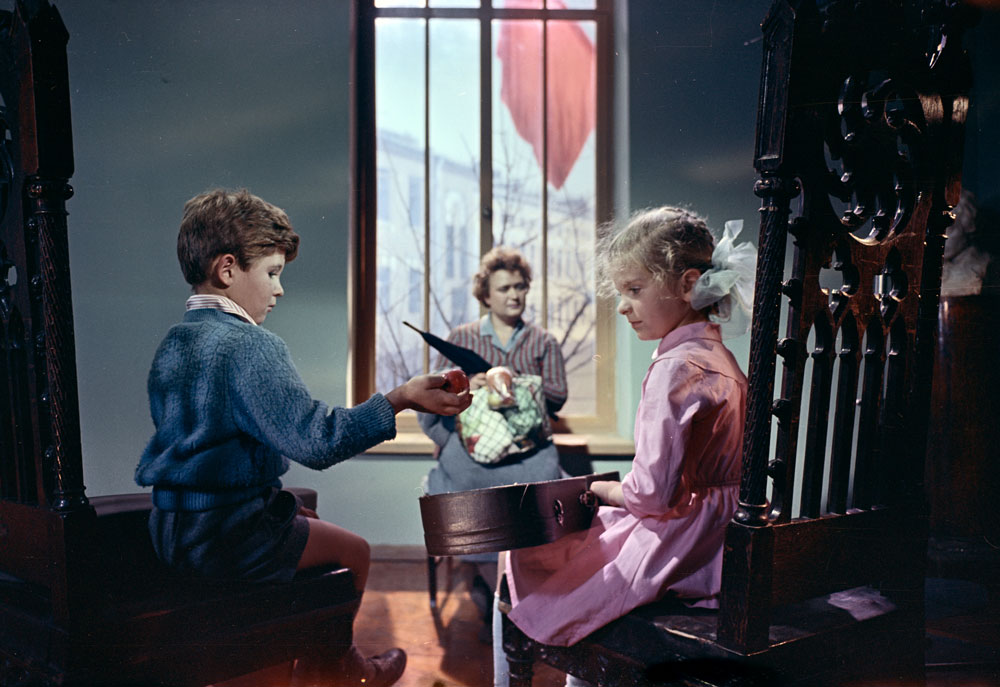
THE STEAMROLLER AND THE VIOLIN (КАТОК И СКРИПКА, 1960) RU, 46’
-

THE KILLERS (УБИЙЦЫ, 1956) RU, 19’
Two men besiege a bar searching for a third man they have to kill. Ten years after the classic The Killers by Robert Siodmak in 1946, Andrei Tarkovsky as a student of the directing program at the prestigious VGIK in Moskva, and suggests to his fellow students, Marika Beiku and Aleksandr Gordo, the adaptation of the short story “The Killers” by Ernest Hemingway from 1927. Hemingway’s collected works are published in USSR for the first time, and VGIK for the first time approves a student film based on a foreign work. Along with Beiku, he directed the first and second scene of the film, and young Tarkovsky also appears in the film as the customer, whistling the jazz classic ‘Lullaby of Birdland’. -

THERE WILL BE NO LEAVE TODAY (СЕГОДНЯ УВОЛЬНЕНИЯ НЕ БУДЕТ, 1959) RU, 47’
THERE WILL BE NO LEAVE TODAY is the second film of Andrei Tarkovsky from the student days. A thriller, also co-directed with Alexander Gordon, based on a real postwar incident. Tarkovsky as a student, searching for his style and under the influence of many American and French thrillers, narrates the story of an army unit trying to transport a sensitive package of arms in an “explosive area” with mines left from World War II. The story takes place in a small, evacuated Soviet town, and the soldiers go on a dangerous mission to save the town. -

THE STEAMROLLER AND THE VIOLIN (КАТОК И СКРИПКА, 1960) RU, 46’
The seven-year-old Sasha practices playing violin every day to satisfy his mother’s ambitions. He already is withdrawn as a result of the daily routine with the music - something of which he is often ridiculed by the other kids from the street. In a short period, Sasha regains his confidence when by accident meets Sergey and they become friends. Sergey works as an operator of a steamroller in their luxurious Moscowian quart. As Sergey narrates to Sasha war stories and incidents, Sasha plays the violin to his new friend… The script of THE STEAMROLLER AND THE VIOLIN is written by Andrei Konchalovsky and Andrei Tarkovsky, and the director of photography is Vadim Yusov who also worked on Tarkovsky’s IVAN'S CHILDHOOD and ANDREI RUBLEV. This is his graduation film at the VGIK, made at the Mosfilm studio, for which Tarkovsky was given the grade of excellent.
RETROSPECTIVE ANDREI TARKOVSKY

IVAN’S CHILDHOOD (Ива́ново де́тство, 1962)

ANDREI RUBLEV (Андрей Рублёв, 1966)
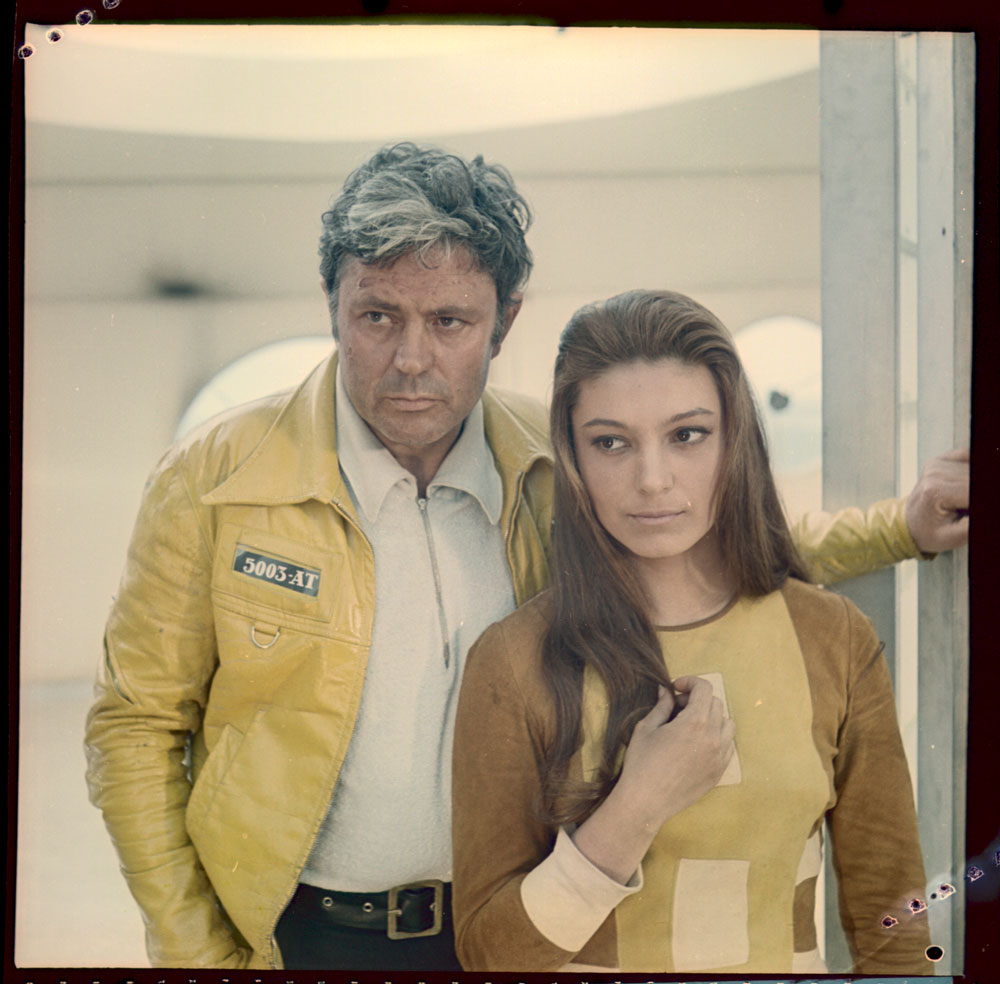
SOLARIS (Солярис, 1972)

MIRROR (Зеркало, 1975)
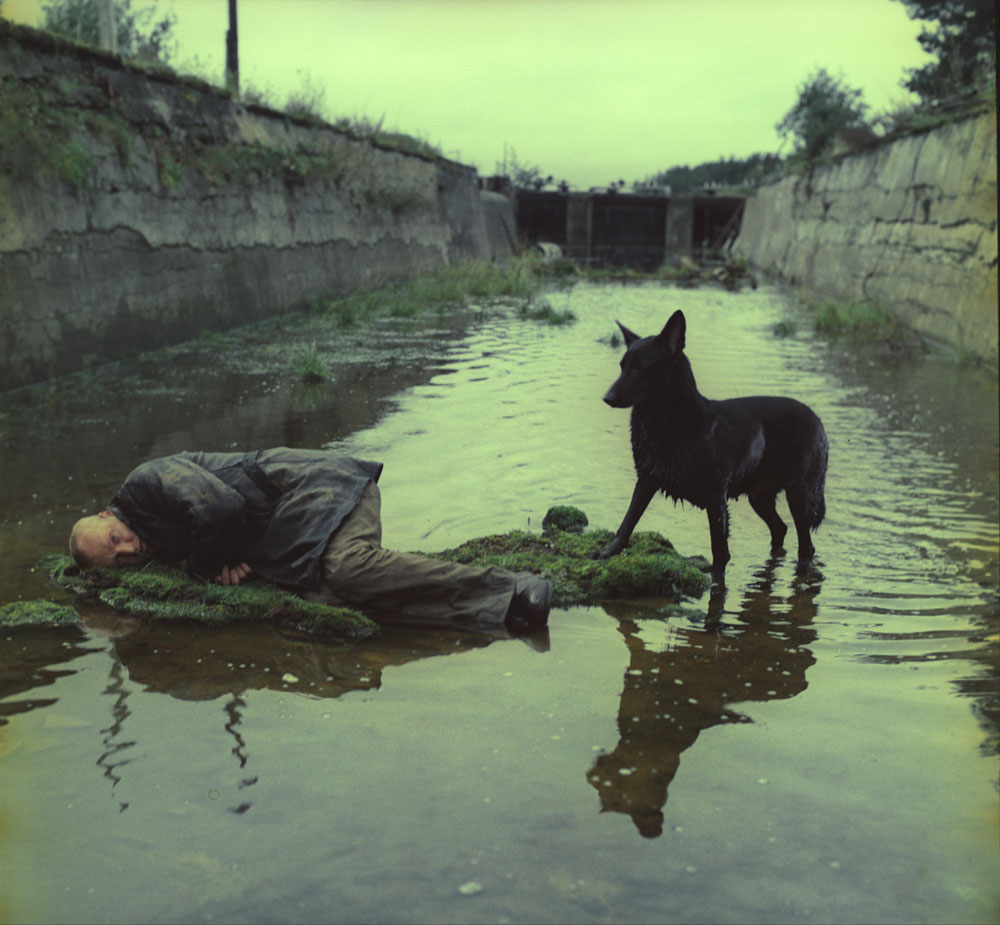
STALKER (Сталкер, 1979)
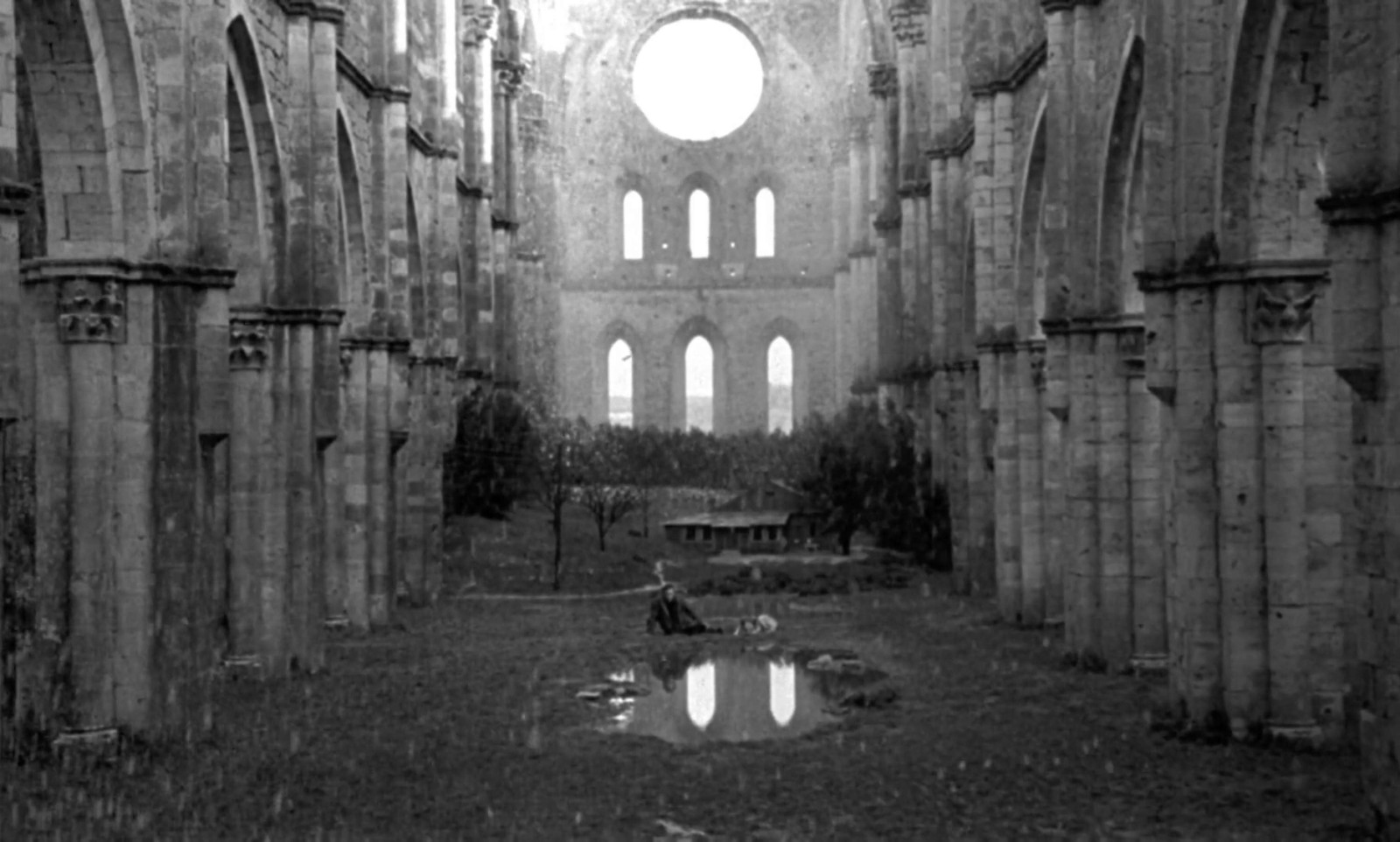
NOSTALGHIA (1983)

SACRAFICE (Offret, 1986)
-

IVAN’S CHILDHOOD (Ива́ново де́тство, 1962)
10 June (Thursday), 20:00 h.
Summer Cinema “A Quiet Summer” (Cinematheque of Macedonia)
12 June (Friday), 17:30 ч.
„Kinoverzum“, ISU Derzhavin / Sveti Nikole
dir. Andrei Tarkovsky (RU), 95’
online Introduction by Igor I. Evlampiev (DSc in Philosophy, Professor), Russia
IVAN'S CHILDHOOD is a tragic story about the lost childhood of a twelve-year-old orphan Ivan, who will be on the eastern Soviet front during World War II. Ivan spies on and gathers information for the benefit of the Soviet Army. He enters deep into the background of the German ranks, risking his own life, although the reason for this is not always clear to the adult and experienced soldiers. They try to put him in a boarding school, and later in a military school, but the small orphan insists on staying at the front and avenging the death of his family.
Ivan is a small hero who confidently steps towards his goals, invisible to everyone, but present in the thoughts of his older friends, the three officers of the Soviet Army. The film is Tarkovsky's first feature film, which also won the "Golden Lion" award at the Venice Film Festival in 1962.
-

ANDREI RUBLEV (Андрей Рублёв, 1966)
12 June (Saturday), 20:00 h.
Summer Cinema “A Quiet Summer” (Cinematheque of Macedonia)
13 June (Sunday), 15:00 ч.
„Kinoverzum“, ISU Derzhavin / Sveti Nikole
ANDREI RUBLEV (Андрей Рублёв, 1966) dir. Andrei Tarkovsky (RU), 183’ Talk by Аtanas Chuposki
ANDREI RUBLEV is a biographical and historical drama based on the life of the famous 15th-century Russian icon painter. In the 15th century, Russian countries are going through turbulent times, torn apart by the Tatar invasion and the struggle for supremacy between the Russian princes (boyars). In such an environment, Andrei Rublev, a monk and icon painter, tries to realize the essence of art and religion, considering the possibility and necessity to create in conditions of repression and injustice and also thinking about the role of the individual, community, and the government in creating a spiritual and epic art…
Rublev experiences the misfortune of witnessing a massacre by the Tatars against the innocent population and the clergy, he is ultimately forced to kill, and he will experience that defeat of the human mind and spirit as his own defeat. Rublev decides to condemn himself to silence and stop communicating with people. After long isolation, he returns among the people and will be surprised by the talent of the young craftsman of the giant bell. During that period he painted his famous icon "The Holy Trinity". ANDREI RUBLEV was banned for a long time by the Soviet authorities who fiercely accused Tarkovsky of ideological and aesthetic subversion. In 1969 won the FIPRESCI Award at the Cannes Film Festival. -

SOLARIS (Солярис, 1972)
13 June (Sunday), 20:00 ч.
Summer Cinema “A Quiet Summer” (Cinematheque of Macedonia)
15 June (Tuesday), 16:00 ч.
„Kinoverzum“, ISU Derzhavin / Sveti Nikole
dir. Andrei Tarkovsky (RU), 166’
Talk by Kiril Trajchev (PhD, professor)
The Solaris mission is an established base on the planet that welcomes a certain kind of agents, but the details around it are very mystical. Scientists are trying to understand the secret of the mysterious planet Solaris, but soon they will become victims of their own imaginations and hidden desires. Psychologist Chris Kelvin (Donatas Banionis) has been sent to the space station after the mysterious disappearance of one of the three scientists at the base. Kelvin is tasked with investigating the doctor's mysterious death, as well as the problems which torment the cosmonauts at the station. He finds the rest of the crew behaving strangely, and is shocked when he meets his wife Curry at the station who died seven years ago. It immediately becomes apparent that Solaris possesses something that carries the repressed memories and obsessions of the cosmonauts at the space station. Kelvin wonders about his perception of reality.
SOLARIS has been the winner of the 1972 Cannes Film Festival, and the film had a remake directed by Steven Soderbergh in 2002.
-

MIRROR (Зеркало, 1975)
14 June (Monday), 20.00 h.
Summer Cinema “A Quiet Summer” (Cinematheque of Macedonia)
Talk by Slavica Srbinovska (professor, PhD)
16 June (Wednesday), 18.00 h.
„Kinoverzum“, ISU Derzhavin / Sveti Nikole
dir. Andrei Tarkovsky (RU), 106’
To the question "Realism of the dream, just like in 'Mirror'?" from an interview in 1980 for Nostalgia which was in preparation at that time, Tarkovsky will answer: There is no "realism" on one side, and on the other (in contrast, contradiction) the "dream". We spend a third of our lives sleeping (that is, dreaming): is there anything out there that is more real than the dream?
A dying man in his forties remembers the past. His childhood, his mother, the war, personal experiences, and memories. A work with autobiographical elements, which takes us through the corridors of time in a mysterious and hypnotical way, Tarkovsky’s MIRROR is a film poem about the amalgam of dreams and memories that we are, as humans, and our human condition anchored in the fluid subjectivity of time… With an unconventional structure and non-linear narrative, cinematography that unobtrusively changes from color to black and white and sepia, the poetry of the director's father - Arseny Tarkovsky, as well as the incidental music and sound effects of Eduard Artemiev in the film, Tarkovsky makes mystical synesthesia of the “stream of consciousness ", tangible as never before on the big screen. MIRROR whose magic, at least once in a lifetime, must be experienced on the big screen, is considered as one of the best films of all times.
-

STALKER (Сталкер, 1979)
15 June (Tuesday), 20.00 h.
Summer Cinema “A Quiet Summer” (Cinematheque of Macedonia)
18 June (Friday), 17.00 h. „Kinoverzum“, ISU Derzhavin / Sveti Nikole
dir. Andrei Tarkovsky (RU), 161’ Talk by Stefan Palitov
STALKER is a sci-fi movie based on the novel "Roadside Picnic" by the brothers Arkady and Boris Strugatsky. The film follows three men, the Scientist (Nikolai Grinko), the Writer (Anatoly Solonitsyn), and the Stalker (Alexander Kaidanovsky), and their journey through a mysterious and forgotten territory in the Russian desert called the Zone. In the Zone, nothing is as it seems: it looks like an extraterrestrial place surrounded by soldiers and barbed wire. Despite his wife's persuasions not to go, Stalker leads people to the Zone where secret desires become a reality, despite risking imprisonment. That night he brings two people to the Zone: the popular writer, who is cynical but also wonders about his genius; and the silent scientist, who cares more about his backpack than about the journey. The access to the Zone must be indirect. As they get closer to the goal, the rules seem to have changed, and Stalker is facing a crisis... -

NOSTALGHIA (1983)
17 June (Thursday), 20:00 ч.
Summer Cinema “A Quiet Summer” (Cinematheque of Macedonia)
19 June (Saturday), 17:00 h.
„Киноверзум“, ISU Derzhavin / Sveti Nikole
dir. Andrei Tarkovsky (RU/IT), 125’
Talk by Vladimir Angelov
Andrei Gorkachov, a Russian poet, is traveling to Tuscany, Italy, to explore the life of an 18th-century Russian composer, Pavel Sosnovsky. But at the very beginning of this journey, Andrei quickly feels uneasy and wants to return to Russia.
Tarkovsky says that in Russian the word "nostalgia" means "love for the home country and melancholy to be away from home." This longing for the home where you come from is embodied in Andrej (Oleg Jankovski, MIRROR). NOSTALGIA, a poetic vision of exile, is the first of Tarkovsky's films to be made outside of Russia, a country he will never return to. In the film, he uses long, dreamy sequences and a minimal story, and for the film written in collaboration with Tonino Guerra (one of Antonioni's frequent collaborators), Hoberman will say: "Nostalghia is not so much a film as a place to inhabit for two hours."
For this film, Tarkovsky won the Best Director award at the 1983 Cannes Film Festival, which he shared with Robert Bresson. -

SACRAFICE (Offret, 1986)
19 June (Saturday), 20.00
Summer Cinema “A Quiet Summer” (Cinematheque of Macedonia)
20 June (Sunday), 17:00 ч.
„Kinoverzum“, ISU Derzhavin / Sveti Nikole
dir. Andrei Tarkovsky (SE/UK/FR), 142’
Talk by Father Milan Gjorgjevik (assistant professor, PhD)
Alexander, a journalist, philosopher, and retired actor tells “The Little Man”, his mute son, how concerned he is about the lack of spirituality in the modern man. That same night, as he celebrates his birthday with family and friends, they learn that the world is threatened by a nuclear holocaust - news that will turn the holiday mood into an atmosphere of fear and despair. On the eve of World War III, Alexander seeks a way to restore world peace but discovers that he must offer something in return ...
SACRIFICE is Tarkovsky's latest film, which he created in the period when he was suffering from cancer before the end of his life, and for which he won his second Grand Prix at the Cannes Film Festival after SOLARIS. Recorded in the Scandinavian idylic setting (on the Swedish island of Gotland, near the island of Bergman), it reflects on the collapse of civilization, as well as the eternal gap between what things are and what we want them to be. The masterpiece of cinematography in the film is by Sven Nykvist, a longtime collaborator of Ingmar Bergman. About the film, TIME Magazine will say: "[…] Tarkovsky's cryptic style helps to create a sublime cathedral."

















